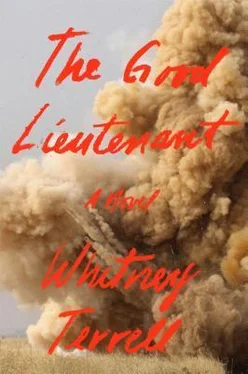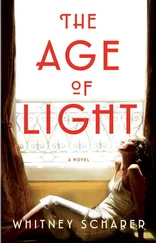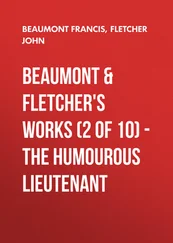By her judgment, the door she’d seen halfway down the alley had to be farther back in the building, past the wall behind the counter, probably into a stockroom, or an apartment in the building’s back half. She was hurrying by then. Why hadn’t she hurried sooner? Fowler had already been worried before she heard the shooting, as if it had been prefigured in her mind — or at least as if she’d already recognized her mistake, which was that she’d been right to be afraid and shouldn’t have resisted the feeling. The only thing she’d been wrong about had been imagining that anything between her and Pulowski could be clean or hard or quick. The part of her that had imagined that it would be easy for her to cut someone off that way, send Pulowski in and forget him. Or Beale, even if it had been his idea. That was her flaw, to pull back, to get offended, to assume that the hurt would be coming, and so then push someone away. Claim that order called for it. Claim the rules told you that it had to be that way. There was a door at the far end of the counter, and she pressed her cheek against the floor and tried to see underneath it — nothing. The space wasn’t wide enough. You are slow. Imagine somebody dying because you took too long to get through a door. No one would know. But you’d know . Her hands were shaking and she felt like a fool, walking into a firefight with nothing but her Beretta sidearm, and she reached out and swung the door in and then pivoted quickly around the door frame in a crouch.
The hallway was a wreck, torn and bunched-up carpet, pictures on the wall, a light at the far end. Rooms on the right and left. “Beale! Hey, it’s me. You here?” It was a bad place, she could feel it. Nowhere to hide if someone took a shot at you in here, so she ducked into the first room that she passed. It was some kind of stockroom. Blood spatter and cardboard boxes in disarray, but no people — and the door out to the alley, she saw that. Beale could have come in there. She went back to the hallway, passed a staircase going up, sighted it, but nothing, and then she shouldered through a door, and she was in a bedroom and there were a man and girl sitting on the bed, shot, lifeless, small sprays of blood on the wall behind them and soaking into the bedspread, the girl’s feet bare. In front of them, a woman knelt on a prayer mat, prostrate, with blood glistening in her black hair like oil. That was when she saw the kid, hiding underneath the bed. He was wearing a Spider-Man shirt and cutoff sweats and looked to be about fifteen. They stared at each other. Fowler had flattened her sidearm on the floor and she could hear her own breath coursing through her chest. The rest of the apartment — if that’s what it was — was silent, uncomfortably so, as if whatever was happening to her had reached some new stage of development, which she had yet to comprehend. “I don’t want to shoot you,” she said. “I don’t want to fucking kill you, okay?” As soon as she said it, she knew that this was not the case. The kid must have figured that out too. They waited there together in that awful space until the kid’s eyes flickered briefly to the dead woman on the prayer mat and he bolted from beneath the bed and Fowler jumped on him. She shouldn’t shoot. “Stop!” she was shouting. “Stop! Get down!” She shouldn’t shoot him, not up close. She’d never shot anybody, and she didn’t know for sure what he had done, didn’t know for sure that he was guilty. There was just his face, dark-eyed, frightened — or maybe just confused. And then Waldorf’s voice in her ear, full-blast, like she’d become something dangerous, Get off, LT! Get off, LT! He didn’t fucking do it , and when he pulled her off, she heard a wet rattling as the muzzle of her Beretta chipped the kid’s teeth.
Later, the Hercules had bulldozed its way far enough down the alley that dismounts from her platoon could get in the doorway. They charged down the hall, going room to room, tearing up the place. Fowler herself swept clear through to the end of the hall and out the back of the apartment to the alley there. No Beale.
Waldorf came out, sweating, looking bleak. “We got nothing in here, ma’am,” he said. “I don’t know. Maybe this isn’t even the right place.”
“It’s possible,” she said. “Except where the hell else would he be?”
And then, a few minutes later, Beale’s voice whispered over her earpiece, cutting in and continuing on until all the other traffic died away:
“Okay, I got this turned down, the audio part, so I can’t hear you. So don’t call back. But this should be … it should be really easy. I am in — I didn’t see it, okay? — but I am in a trunk, definitely, so we’re talking about a passenger vehicle. Three guys, Western dress — I think. I don’t really. I really only saw flip-flops, pants cuffs. A pair of blue flip-flops was what…”
A long, long pause followed. Everyone was listening: the platoon’s other members at the intersection, Operations Sergeant Simpson and Captain Hartz, who were manning the radio back at Camp Tolerance. All of them could hear that the pathetic and utterly useless detail of the flip-flops had done something bad to Beale.
“I’m in a blue sedan.
“The car has been driving just a couple minutes. I’m lucky I got my hands free.
“They aren’t pros. They were frightened and in a hurry. If they’d been pros they would’ve taken my radio away.
“I have a dislocated shoulder.”
There was other traffic by now, of course. There were people shouting orders in other rooms, over other radio frequencies; there was Fowler out in the dust, trying to mount her team up in their Humvees. But wherever Beale lay, it was quiet. And he was whispering into his microphone, in a way that seemed meant for her ears only:
“I’m good. It’s all good. You guys come and get me. Please.”
* * *
The night after Faisal Amar had left, refusing Ayad’s offer of shelter, a convoy arrived at Ayad’s house: two pickups and a familiar blue sedan. From the roof, Ayad watched as the front truck turned violently up his driveway and extinguished its lights. And then — Ayad was already moving then, hustling breathlessly along the roofline — a bright rooster tail of sparks danced from the chain on the front gate. On the ladder, coming down, he fumbled the boxlike trapdoor lid and its corner smashed his fingers. At the same time he felt a strange warmth boring into his heel. He jerked his right knee into the air, swatting at the cuff of his jogging pants. And then, peeking between his legs, down the canted steps of the ladder, he saw his mother in her veil. If there had been a moment when he’d contemplated doing something heroic, it ended there, in this hollow glimpse, down between his thighs, of his mother so absurdly pulling herself up that ladder, concentrating on her feet so that she didn’t see him, a snuffed candle in her upraised hand.
Now downstairs, past — he noticed this only in fragments — the shadowed pictures of his brother in his military dress, on leave from his brigade, on vacation, during his first promotion, the illustrious record of his family’s past which he’d long ago insisted be packed away. And which his mother, in her pridefulness, had refused to move. Next in this dumb parade was the actual physical body of his brother’s son, Ahmed, stationed in the front hall, every bit as proud as his grandmother, brandishing a paring knife. All of them would have to go, the living and the dead. All of them should have been sent away or hidden the minute that he’d rejected Faisal’s offer, the minute he’d made the mistake of believing in his friend. For now, in a single, furious swoop, Ayad wrenched the knife from Ahmed’s fingers, twisted up his shirtfront in his fist, and dragged him back, away from the front door (there were lights playing and flickering around its edges by then), and shoved him down the back passage that led to the kitchen, the women’s side of the house. He ran back to the door and stashed the knife in the frail top drawer of the hall credenza, which was still crammed, as it had been since Ayad’s youth, with the scraps of his father’s correspondence, cards, birthday invitations, stamps. From these he grabbed a writing tablet — a gift from some fertilizer store — and first a gold pen, then, throwing that down, a Bic. And armed with these, Ayad opened the door, pen and pad in hand. He held up a single word— Welcome —as if it were a shield.
Читать дальше












